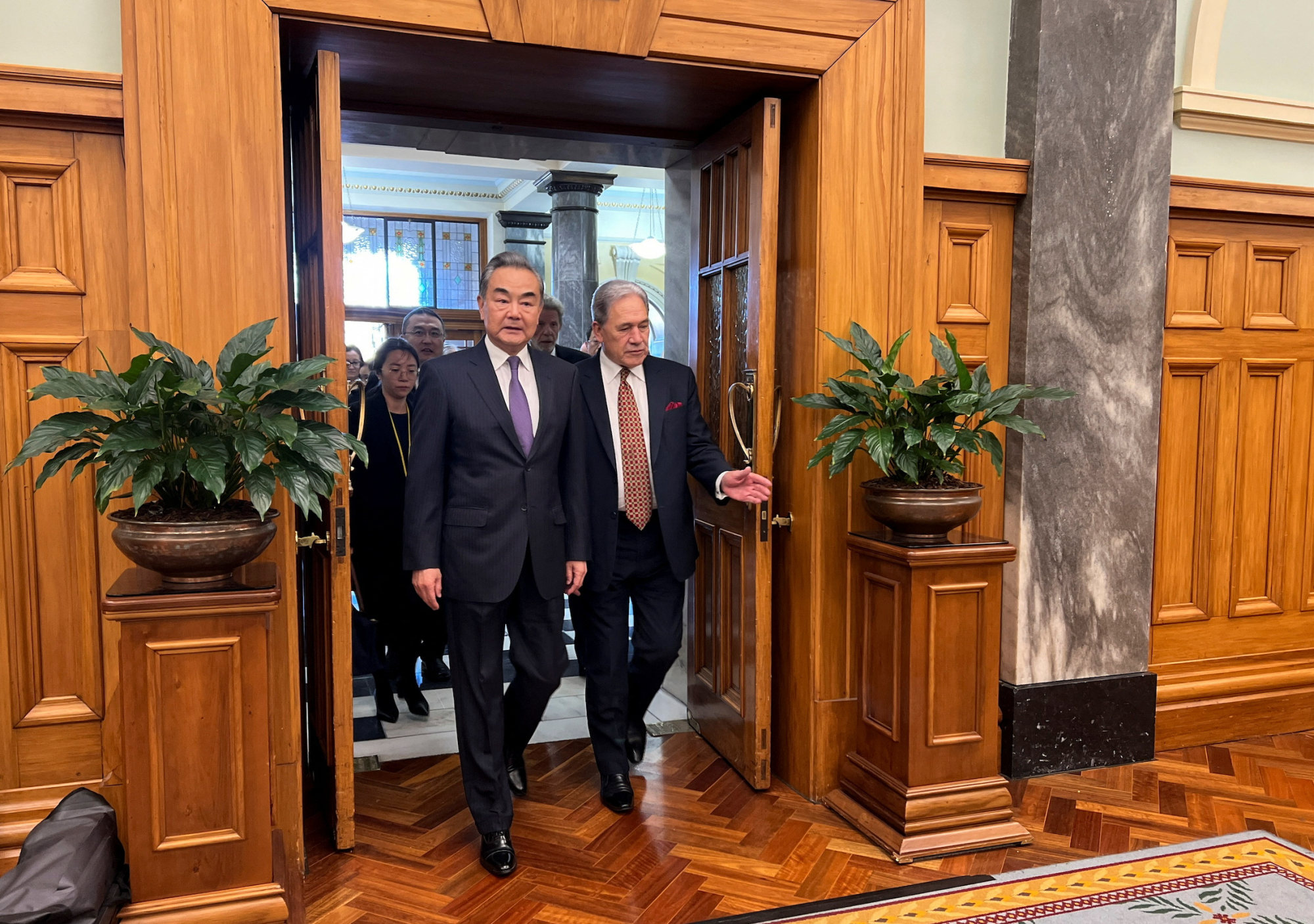
China and New Zealand are a ‘force for stability’ in a turbulent world, says Foreign Minister Wang Yi
- Wang hails the strength of the relationship at the start of a trip to the region that will also include a visit to Australia
- Meanwhile, New Zealand Prime Minister Christopher Luxon says the country wanted to build relations with ‘renewed energy and renewed urgency’
China’s ties with New Zealand had been “at the forefront of China’s relations with developed countries”, which Wang said was “a valuable asset to be cherished” by the two sides.
“China regards New Zealand as a rational and mature partner, and the relationship between China and New Zealand is strategic and long-term,” Wang said.
“We are willing to work with New Zealand to celebrate the 10th anniversary of the establishment of the Comprehensive Strategic Partnership … cross new benchmarks, create an upgraded version of the Comprehensive Strategic Partnership, and build a peaceful and different relationship between the countries.”
With new China-friendly PM, how will New Zealand balance the big powers?
Wang said China was willing to be a “reliable strategic partner” to New Zealand, especially in the fields of education, technology innovation, infrastructure and export, areas that Wellington has considered as priorities for development.
He also urged the two countries to work together “to strengthen solidarity and cooperation, resist cold war thinking, unilateralism and protectionism”.
He said working with China was “really critical to us in building our relationships out across the region”.
Earlier Wang told Peters, who is also the deputy prime minister, that relations between the two countries “have always maintained a healthy momentum of development and have become a force of stability in the world, regardless of changes in the international and regional situation”.
“China and New Zealand had neither historical grudges nor real disputes but shared … broad common interests,” he said, adding that they should “continue to respect each other’s social systems and take care of each other’s core interests and major concerns”.
New Zealand begins talks on joining Aukus defence pact
According to the Chinese foreign ministry, Wang also said that Beijing was willing to cooperate in areas such as infrastructure, the green and digital economies, innovation and climate change, as well as boosting cultural exchanges.
Wang also urged New Zealand to “safeguard the safety and legitimate rights and interests of Chinese students and tourists”.
Peters said Wang’s visit – his first to the country since 2017 – was a “valuable opportunity to reflect on the challenges and opportunities” facing the two countries.
“Alongside areas of cooperation, it was important to acknowledge areas of difference such as human rights, including the situation in Xinjiang, Hong Kong and Tibet,” Peters said.
“New Zealand follows developments in the Pacific closely and emphasises the importance of engaging through existing regional institutions and arrangements, in particular on regional security matters,” Peters said.

“New Zealand places great importance on supporting the current international rules-based order. We emphasised the constructive role China can play in responding to regional and international security challenges such as the Russia-Ukraine and Israel-Hamas conflicts and de-escalating tensions on the Korean peninsula.”
The two said they looked forward to further high-level visits between China and New Zealand this year and committed to holding talks on foreign affairs, trade, consular issues, the Pacific, climate change, and human rights.
In his meeting with McClay in Wellington on Monday, Wang called for joint efforts to “safeguard free trade, oppose unilateralism and protectionism in the name of ‘de-risking’, build an open world economy, and provide a favourable business environment for enterprises in both countries”.
Beijing has repeatedly accused Aukus of encouraging nuclear proliferation. Last month the Chinese defence ministry warned Wellington not to “harm its own security interests” after New Zealand, a member of the anglophone “Five Eyes” intelligence alliance, expressed an interest in working with Aukus on areas such as cyber warfare, artificial intelligence and hypersonic weapons.
This year marks the 10th anniversary of the signing of a comprehensive strategic partnership between the two countries. China is now New Zealand’s biggest trading partner, accounting for 28 per cent of goods exports in 2022, while two-way trade reached US$23.55 billion in the year ending September 2023, according to Wellington’s official figures.
Chinese developers pull back in Australia, New Zealand as property boom ends
New Zealand was also the first developed country to sign a free-trade agreement with China in 2008.
The country is now China’s largest supplier of dairy products in a trade worth around NZ$8 billion (US$4.9 billion) a year over the past three years. Around half of this trade was in milk powder.

